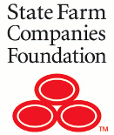Standard 6.3: Mentor professional development
To foster the development of effective mentor practice, program leadership must provide opportunities for mentors to build on their foundational training. This is best achieved by developing a plan for ongoing and regularly-scheduled professional development that is implemented with fidelity. Taking into consideration the needs of mentors, training topics should be chosen that will deepen mentor skills and provide an ongoing network of communication and support among mentors.
Topics to include in ongoing mentor training can include the following:
- Gathering and analyzing data for formative assessment of beginning teachers
- Illinois Continuum of Teacher Development (password required)
- Analysis of student work and data
- Observation and data collection strategies
- Mentor self-assessment and reflection
- Providing current information on instructional practices and district/school initiatives
- Technological resources
Evaluations of mentor training should be administered and the data analyzed (see Standard 9 for more details) in order to determine effectiveness of the ongoing training sessions, as well as to plan for continued needs and support of mentors, considering differentiation for levels of mentor expertise. Organizations such as the Illinois New Teacher Collaborative (INTC), Induction for the 21st Century (ICE21), the New Teacher Center (NTC), and Consortium for Educational Change (CEC) are available to support this very important task of providing resources to assist programs with these tasks.
Together, the foundational training, professional learning community established for mentors, and the ongoing professional development and support mentors receive will be the most effective way to advance induction practices to truly promote beginning teacher development.
Assessment and Evaluation of Mentors
Mentors are often hungry for feedback about their work. An ideal program encourages a mentor learning community focused on knowledge and skills needed to move beginning teachers toward mastering the craft.
Some programs develop mentor evaluations by starting with a document that should already be in place—the program’s “mentor expectations” list. For example, the expectation, “Engage in reflective conversations with the new teacher,” could become the evaluation criterion, “There is evidence that the mentor and new teacher are participating in reflective conversations that assist the new teacher in improving his/her teaching practice.” Each statement could then be incorporated into a list or rubric that can be used for evaluation. The evaluation criteria can be used in a formative process in which the evaluator and the mentor have reflective conversations about how the mentor perceives his/her functioning on the criteria and how the mentor could move forward in certain areas. The mentor could also reflect on the criteria in writing and then schedule a conversation about those reflections.
More developed programs may want to create a continuum of performance by further defining the criteria into levels. For example, levels for the “reflective conversation” criteria from above might look like this:
Level 1: The mentor was not able to describe reflective conversations that had taken place.
Level 2: The mentor was able to recall and describe 1 or 2 examples of reflective conversations, but there was no written evidence.
Level 3: There was both written and anecdotal evidence of reflective conversations.
Level 4: There was both written and anecdotal evidence of reflective conversations, and there was written evidence that the new teacher’s practice improved as a result.
Before any evaluation instrument is developed and used there are important considerations:
- It is essential that expectations and evaluation criteria are developed in collaboration with experienced, skilled mentors.
- Evaluation should differentiate criteria for work with first- and second-year teachers. For example, expectations for teacher practice and student outcomes might be greater for mentors working with second-year teachers.
- Care should be taken that the instrument is used in a way encourages mentor skill development.
- Since the mentor/new teacher relationship is one built around confidentiality and privacy, it would be difficult for one individual—a Program Director, for example—to have sufficient knowledge to evaluate fairly.
Creating effective and fair evaluation criteria is always a challenge, so it is best for developing programs to keep this process as simple as possible and to work toward more complex instruments as the program leaders develop skills and confidence. However, it is essential that that mentors have clear expectations, that they are held accountable for their work, and that the program has information for ongoing mentor training and support.


